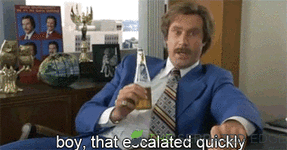Indy
Misfit
- User ID
- 57
It's going to be piss funny when he gets to clear out his American workforce, and replace them with immigrants. MAGA folk are going to lose their shit entirely.
Yeah, not to mention inflation going through the roof when he wacks on his tariffs - even though he said he'd get inflation down.It's going to be piss funny when he gets to clear out his American workforce, and replace them with immigrants. MAGA folk are going to lose their shit entirely.
It's the 26th of January each year, however this year it falls on a Sunday, so the Public Holiday is Monday the 27th.
People like you who just simply accept the fact you a considered nothing more that a tool by the elite to be used as they see fit are the reason a broken system will not be changed.
The "game" as you put it is rigged and not for people like you sooking about house prices, groceries or fuel.
But you just weakly accept it and struggle on complaining where if people opened their eyes to the corruption of the system it could be changed.
Do you not watch politicians continually saying we don't have the money to pay teachers more, nurses, paramedics or build better hospitals, schools, roads or any infrastructure.
There is literally 10s of billions of dollars being stolen from the Australian people by these billionaires.
Really it's the fault of these politicians who are to weak to reform the tax system.
Let me clarify something: the reason I’ve achieved any level of success has nothing to do with blind acceptance of the system. Quite the opposite—it’s because I reject the defeatist notion that I’m merely a ‘tool’ for the elites. That mindset is what keeps people perpetually stagnant, not the system itself. Personal agency matters, and while systemic flaws undeniably exist, blaming everything on corruption or a ‘rigged game’ often serves as an excuse for inaction. Success doesn’t require naivety about the system; it requires learning how to navigate it effectively.Not paying tax is considered a crime! Sorry I should of said commiting tax crimes against the Australian public but stealing was shorter.
Ok if sell some stuff in your little shop and don't pay tax on your profits the ATO considers that a tax evasion and that is a crime.
Now if you had enough money you could hire experts to use the "broken" system to your advantage and hide those profits and not pay tax while still enjoying all the benefits of other tax payer's like roads, schools, healthcare and all the others while not contributing.
This is exactly what the elite have the power to do while you me and everyone else can not.
That is inequality.
You and some others may be fine with this system but me and lots of others are not.

I would be considered a nazi but then again virtually everyone is.nazi sympathiser stoners fuck off.
So expecting them to pay the same amount of tax as everyone else is railing against elites?Let me clarify something: the reason I’ve achieved any level of success has nothing to do with blind acceptance of the system. Quite the opposite—it’s because I reject the defeatist notion that I’m merely a ‘tool’ for the elites. That mindset is what keeps people perpetually stagnant, not the system itself. Personal agency matters, and while systemic flaws undeniably exist, blaming everything on corruption or a ‘rigged game’ often serves as an excuse for inaction. Success doesn’t require naivety about the system; it requires learning how to navigate it effectively.
That said, I don’t dispute that tax avoidance by the ultra-wealthy is a significant problem. It’s frustrating to see billionaires exploit loopholes while the rest of us are bound to stricter rules. However, it’s worth asking an uncomfortable question: if given the opportunity, how many people would truly act differently? Self-interest is deeply ingrained in human behaviour, and most would likely do the same if the system enabled them to.
Addressing inequality and fixing the system, however, demands a more nuanced approach than merely closing tax loopholes. True equality, while idealistic, comes with inherent complexities. For instance, where do we draw the line? What’s ‘fair,’ and who defines it? There’s always going to be a degree of inequality in any human system—it’s an inevitable byproduct of diverse abilities, choices, and circumstances. The challenge lies in mitigating its excesses without undermining the incentives that drive innovation and progress.
Moreover, it’s not enough to blame billionaires for these issues. The political class plays an equally significant role in perpetuating inequality, often enabling the very systems that shield wealth from accountability. While politicians routinely cite a lack of resources to improve healthcare, education, or infrastructure, they simultaneously benefit from structures that favour the privileged. Reforming tax policy is important, but without a corresponding shift in how public funds are allocated and managed, it’s little more than a superficial fix.
Ultimately, the conversation shouldn’t just centre on taxing the wealthy; it should focus on building a system that fosters accountability, transparency, and equitable opportunity. Tax reforms alone won’t dismantle entrenched inequality if the mechanisms for redistributing those funds remain inefficient or mismanaged. If we want meaningful change, we need solutions that address the root causes of inequality, not just its symptoms.
So yes, holding billionaires accountable is necessary, but it’s only one piece of a far more complex puzzle. Railing against elites without offering actionable reforms risks becoming little more than performative outrage. Change requires more than noise—it requires thoughtful, pragmatic, and sustained efforts to create a fairer system for everyone.
View attachment 56296
Let’s deconstruct this moral high ground you’ve claimed, shall we? You’ve constructed a caricature of “people like me”—a nebulous archetype you’ve decided is complicit in perpetuating the system’s flaws. But let’s be clear: this argument is neither groundbreaking nor particularly well-reasoned. It’s the same tired rhetoric of assigning blame to an undefined “other” without meaningfully addressing the complexities of systemic issues.So expecting them to pay the same amount of tax as everyone else is railing against elites?
Yes governments play a major roll but when billionaires own governments by let's call it what it is bribery not lobbying they have power that ordinary people can not access there for the "game" is rigged.
They have the power to create laws to suit themselves and impoverish others.
These people aren't just sitting at home in one of their mansions and hoping the governments pass laws to actively favour them they a paying millions to bribe both sides to change laws to make them more at the expense of the ordinary person.
Fuck what do you think the Business council of Australia is or the minerals council. They are bodies setup by billionaires to keep them rich and make everyone else have to as you put it not have "a defeatist" attitude just to survive.
Like I said it's people like you who just accept they system is why not only it won't charge but it will get worse.
Make no mistake you me and everyone else are nothing more that tools to be used by these people as they see fit.
Fuck if it were up to the business council of Australia we wouldn't even have a minimum wage and you could be sacked for nothing.


A leopard can't change its spots.America fucked around with re installing DonOLD as president now comes the find out part

close GrammarlyAll sounds like chat gpt to me
You seem to like to over complicat things.Let’s deconstruct this moral high ground you’ve claimed, shall we? You’ve constructed a caricature of “people like me”—a nebulous archetype you’ve decided is complicit in perpetuating the system’s flaws. But let’s be clear: this argument is neither groundbreaking nor particularly well-reasoned. It’s the same tired rhetoric of assigning blame to an undefined “other” without meaningfully addressing the complexities of systemic issues.
You accuse me of “accepting the system,” but what you fail to recognise is that acknowledging the system’s flaws and learning to navigate them effectively isn’t acquiescence—it’s pragmatism. Dismissing that as weakness or complicity undermines the reality of how progress is actually achieved. Complaining about the game without participating in it doesn’t make one virtuous; it renders them irrelevant. Addressing inequality and structural inequities demands more than indignation—it requires thoughtful engagement, strategy, and action.
Your fixation on a so-called “rigged game” as the sole domain of billionaires ignores the reality that these systems are upheld by more than just wealth—it’s governance, policy, and collective participation that sustain them. Take, for example, the recent Australian Taxation Office (ATO) investigations into multinational tax avoidance. Corporations exploit complex loopholes to shift profits offshore while paying minimal taxes, yet the everyday person has no access to such mechanisms. These aren’t flaws perpetuated by the middle class—they’re systemic issues that require better enforcement and reform at the top levels.
If your argument is that complicity exists across society, then let’s be honest about it: we’re all part of the system to varying degrees, whether by necessity, design, or circumstance. But simplifying this to an accusation of complicity without considering the practical constraints of most people’s lives—like making ends meet, navigating opportunities, or simply surviving—shows a lack of nuance. People aren’t pawns for the elite simply because they don’t have the luxury of burning down the system.
Let’s also address this romanticized notion that everyone railing against the wealthy would behave differently if handed the same opportunities. Human nature gravitates toward self-interest—it’s ingrained in our behaviour. Recent discussions around global inequality, like Oxfam’s Global Inequality Report, reveal how the wealthiest 1% accumulated two-thirds of all new wealth created in the past few years. But here’s the uncomfortable truth: many who criticize billionaires would exploit the same loopholes if given the chance. Morality often becomes flexible when power and wealth are within reach, and pretending otherwise is disingenuous.
Moreover, let’s dispense with the idea that the middle class or “people like me” are the primary enablers of inequality. Australia’s housing crisis is a perfect example of how structural forces—not individual complacency—perpetuate inequities. Policies favouring developers and investors have driven property prices sky-high, locking many out of homeownership. This isn’t the fault of those trying to navigate these challenges—it’s a governance issue that requires reform, not finger-pointing.
Finally, your attempt to reduce me to a symbol of systemic complacency—“people like me”—is as intellectually lazy as it is unfounded. You don’t know my background, my values, or the choices I’ve made to navigate this world. Assuming that my decision to focus on living my life within the parameters of reality somehow equates to complicity or failure to act ignores a basic truth: not everyone needs to frame their existence as a crusade against the system to have agency. Real change doesn’t come from pontificating on imagined high ground; it requires understanding the rules of the game and leveraging them effectively.
At the core, I’m not here to posture as an activist or reformer—I’m simply living my life as best as I can. If that challenges your worldview, perhaps it’s worth examining the assumptions underpinning your outrage. Not everyone who disagrees with your approach is blind to the system’s flaws—some of us simply choose to engage with it differently.
View attachment 56306
View attachment 56305
